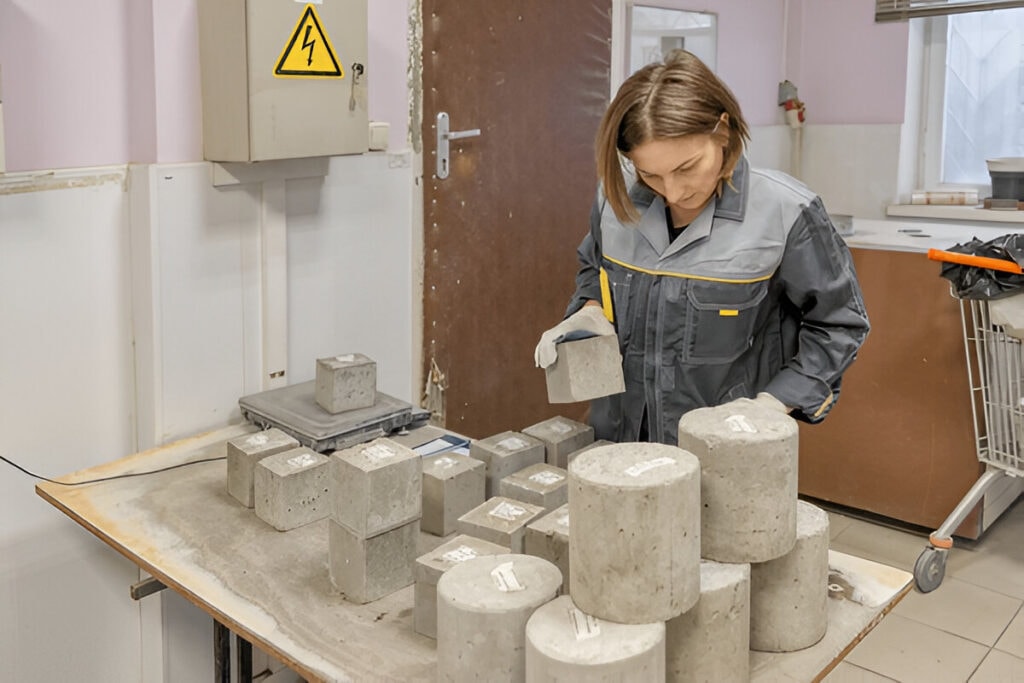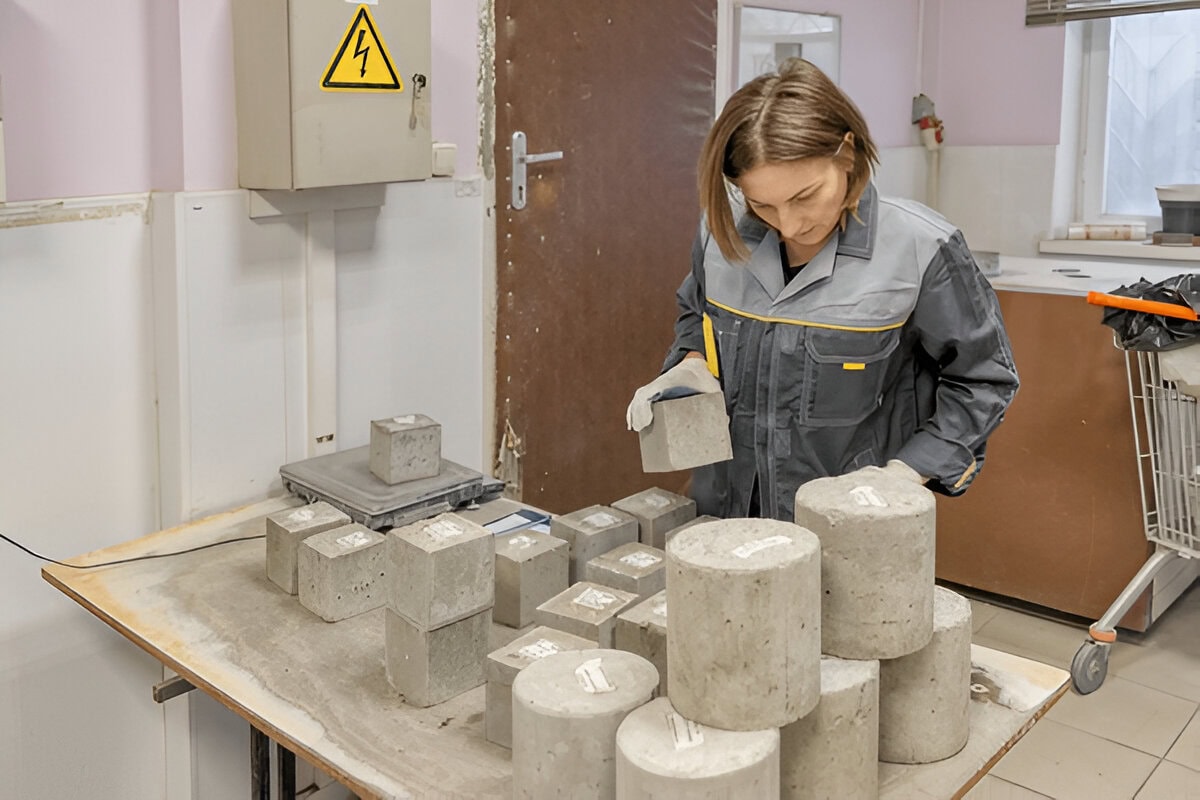When you’re investing in a construction project, concrete isn’t just another material—it’s the backbone of your entire structure. Imagine building your dream home or commercial space, only to discover years later that weak concrete is compromising its integrity. That’s why concrete testing isn’t just a technical formality; it’s your guarantee of safety, durability, and peace of mind.

At Concrete Contractors Huntsville, we’ve seen firsthand how proper testing can make or break a project. Let me walk you through the most critical concrete tests that separate professional-grade construction from amateur work.
1. Slump Test: Measuring Concrete’s Perfect Consistency
Picture concrete like a perfect cake batter. Too runny, and it won’t hold its shape. Too thick, and it won’t spread evenly. The slump test is our secret weapon for getting that ideal consistency.
When we perform a slump test, we fill a special cone with fresh concrete, then carefully remove the cone. The concrete’s “slump” or drop tells us exactly how workable it is. A 4-inch slump typically means your concrete is just right—not too stiff, not too fluid.
Real-world example: We once worked on a parking lot where improper concrete consistency would have meant uneven surfaces and potential cracking. The slump test saved our client thousands in potential repairs.
2. Compressive Strength Test: The Ultimate Durability Check
Strength isn’t just about muscle—it’s about concrete, too. The compressive strength test determines how much weight and pressure your concrete can handle without failing.
We take concrete cylinder samples and test them at different ages—usually 7, 28, and 90 days. Most construction projects require a minimum of 4,000 pounds per square inch (PSI) at 28 days. Our tests consistently show concrete reaching 5,000 to 5,500 PSI, which means extra durability for your project.
3. Air Content Test: Protecting Against Freeze-Thaw Damage
In Huntsville’s variable climate, air content is crucial. This test measures the volume of air bubbles in concrete, which act like tiny shock absorbers during temperature changes.
For outdoor projects, we aim for 6-8% air content. These microscopic air pockets prevent water from creating internal pressure during freezing, which can cause devastating concrete cracking.
4. Temperature Test: Ensuring Proper Concrete Placement
Concrete is sensitive. Too hot or too cold, and its entire chemical structure changes. We measure concrete temperature during mixing and placement, ensuring it stays between 50-80 degrees Fahrenheit for optimal curing.
5. Chloride Content Test: Protecting Against Corrosion
Salt and concrete don’t mix well. The chloride content test helps us detect potentially corrosive elements that could damage reinforcing steel within the concrete.
For coastal or heavily salted areas, this test is a game-changer. We’ve prevented numerous potential structural failures by catching high chloride levels early.
6. Moisture Content Test: The Silent Project Destroyer
Excess moisture can ruin even the best-laid concrete plans. Our moisture content test reveals hidden water that could compromise your concrete’s strength and lead to future problems like mold or structural weakness.
Trust the Experts, Trust the Process
At Concrete Contractors Huntsville, we don’t just pour concrete—we engineer solutions. These tests aren’t just boxes we check; they’re our commitment to delivering exceptional quality.
When you choose us, you’re choosing peace of mind. Our rigorous testing process means your project stands on a foundation of proven strength, precision, and expertise.
Ready to start your next project with confidence? Contact Concrete Contractors Huntsville today and experience the difference professional testing makes.

